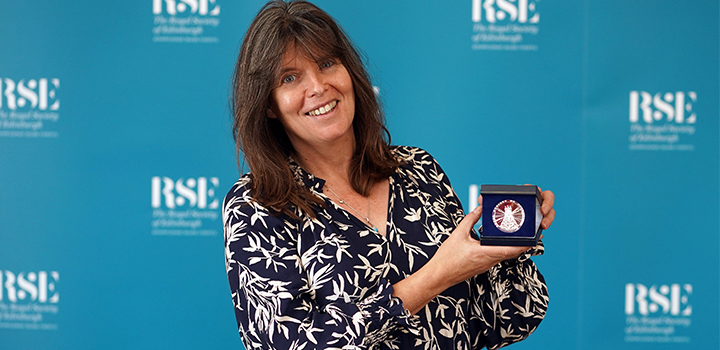Major international project to tackle climate change resilience in Africa
By: News Archive

A new €6.7M project involving the University of East Anglia (UEA) aims to help rural East African communities adapt to climate change using state-of-the-art predictions of water scarcity and food insecurity.
Led by scientists at Cardiff University, with substantial contributions from 13 other partners in seven countries, the international team of researchers will help tackle food and water insecurity in the Horn of Africa Drylands (HAD) of Kenya, Somalia, and Ethiopia.
The DOWN2EARTH project, funded by the EU Horizon 2020 programme, will employ state-of-the-art seasonal forecasts and decadal projections of climate change and translate this into clear and concise information that can be used by farmers and pastoralists, communities, NGOs and governments to mitigate the negative impacts of climate change on rural livelihoods.
A major component of DOWN2EARTH involves improving the accuracy of forecasting climate variability in critical rainy seasons and assessing its impact on the total amount of water stored in soils for agriculture and deeper underground for drinking water supplies.
This will help better predict impacts on farming, food and water production and increase resilience across this extremely vulnerable region, allowing the population to make better, more informed decisions.
Dr Roger Few and Dr Mark Tebboth of the School of International Development and Tyndall Centre for Climate Research at UEA, will lead work in rural communities to understand gendered decision-making for climate adaptation, working closely with Action Aid and their field teams, as well as the University of Nairobi and Addis Ababa University.
They will design of an integrated program of research in rural communities, differentiated by age, gender, and ethnicity, on adaptations to climate shocks and climate change, and on engagement with technology.
Dr Few said: “Arid and semi-arid regions are highly dynamic environments within which multiple pressures combine, shaping the livelihoods of people and their vulnerability to specific threats such as climate change.
“Our key role in the programme will be to ground the development of new technologies in the everyday realities of people who live and work in these dryland environments. Our job as social scientists is to gain a holistic understanding of people’s information needs, what would be useful to them, and how it can best be delivered, to make sure that technologies and tools developed by others in the consortium are appropriate and useful.
“But this also means understanding that different members of communities may have different views and needs, and it is vital to make sure all voices are heard in order to avoid creating exacerbating inequalities and vulnerabilities. Rural communities are not homogenous, nor representable by consulting only with village heads who are typically older, wealthier and male.”
Principal Investigator of DOWN2EARTH Dr Michael Singer, from Cardiff University’s School of Earth and Ocean Sciences and Water Research Institute, said: “Adaptation to climate change requires better and more timely information about the expression of climate at the land surface, in soil moisture required to grow crops and groundwater for drinking.
“This information needs to be delivered to people making decisions at multiple levels of society, from rural agro-pastoralist villagers deciding what and when to plant crops or move their herds, to government ministries developing new land and water management policies, to NGOs mounting humanitarian responses to drought-related famine.”
A key aspect of DOWN2EARTH will be the support given to multi-level stakeholders about to how expand their knowledge of the climate and to better use information that is gathered from climate monitoring and predicting systems. This will be in the form of desktop and mobile phone apps that deliver timely information from the modelling on projected water storage and crop yields for upcoming seasons. This information, based on the best available climate forecasts, will be co-developed with the target stakeholders to ensure it is useful to improve decision making at all levels from village to government ministry.
Under the influence of climate change, the “new normal” in the HAD will be characterised by March-to-May drought about every other year, but it is unclear whether other rainy months will support opportunities for adaptation to this drought-prone situation.
The HAD drylands are one of the most food insecure regions on Earth. Rural communities are particularly vulnerable to food insecurity and associated economic losses during drought conditions, due to low socio-economic levels and limited ability to respond to these climatic shocks.
The project will also assess the socio-economic dimensions and human dynamics of climate change including feedbacks between climatic shocks, human behaviour and policy implementation. Ultimately, DOWN2EARTH aims to strengthen regional climate services through capacity building, citizen science, information dissemination, expansion of data networks, and policy implementation.
Part of this work will be undertaken by project partners BBC Media-Action, who will be developing and training radio stations in the region to produce new programmatic content addressing issues of climate change adaptation.
Image credit: BBC Media Action
Study International Development at UEA
Related Articles

Prof Jenni Barclay honoured by the Royal Society of Edinburgh
Prof Jenni Barclay, Professor of Volcanology, has been honoured for her contributions to the emerging field of social volcanology by the Royal Society of Edinburgh with the James Hutton Medal.
Read more
Protect delicate polar ecosystems by mapping biodiversity
Polar regions contain vast, undiscovered biodiversity but are both the most-threatened and least-understood areas of the world.
Read more
Six UEA professors named in Highly Cited Researchers 2023 list
Six UEA professors have been named in the annual Highly Cited Researchers list for 2023, which celebrates some of the most influential researchers in the world today.
Read more